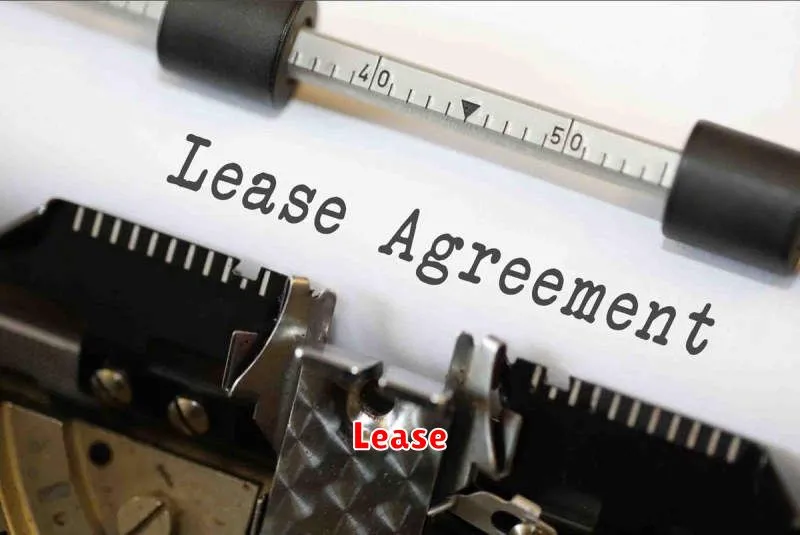Before signing an apartment lease, it’s important to ask the right questions to ensure you’re making a wise decision. You’ll be living in this space for at least a year, so it’s crucial to make sure it’s the right fit for you. Many landlords or property managers may try to rush you into signing the lease without giving you the chance to fully understand the terms. Don’t feel pressured; take your time to carefully consider your options and make the right choice for your living situation. This article will help you prepare for this important decision by providing you with essential questions to ask before signing a lease.
Understanding the Lease Terms
Before signing an apartment lease, it’s crucial to carefully read and understand all the terms and conditions. This document outlines your rights and responsibilities as a tenant, and it’s essential to ensure you’re comfortable with everything it entails. Here are some key lease terms to pay close attention to:
Lease Duration: The lease duration specifies the length of your tenancy, typically ranging from 6 months to a year or more. Make sure you’re comfortable with the commitment and that it aligns with your timeline.
Rent Amount and Payment Due Date: The lease clearly states your monthly rent amount and the date it’s due each month. This helps you avoid late fees and maintain a good payment history.
Security Deposit: The security deposit is a sum of money you pay upfront to cover potential damages to the apartment. Understand how the deposit is handled, including the conditions under which it’s refunded at the end of your lease.
Pet Policy: If you have pets, be sure to carefully review the pet policy. This outlines the permitted types and number of pets, any breed restrictions, and any associated fees.
Early Termination Clause: This clause outlines the terms under which you can break the lease early. It may specify conditions such as finding a suitable replacement tenant, and potential financial penalties you may incur.
Maintenance Responsibilities: The lease details who is responsible for different types of maintenance repairs. Understand what you’re expected to handle and what the landlord is obligated to repair.
Quiet Hours and Noise Restrictions: These clauses outline the acceptable noise levels and hours of the day when quiet is expected. Make sure these rules align with your lifestyle.
Parking: If parking is included in the lease, be aware of the restrictions, such as designated parking spaces and any associated fees.
Utilities: The lease should specify which utilities are included in your rent and which you’re responsible for paying separately. This helps you budget for your monthly expenses.
Guest Policy: This clause may outline restrictions on how often and for how long guests can stay at the apartment.
Understanding these key lease terms empowers you to make an informed decision about your rental agreement. Don’t hesitate to ask your landlord for clarification if you have any questions or concerns.
Rent and Payment Policies
Before signing a lease, make sure you fully understand the landlord’s rent and payment policies. This includes understanding the due date for rent, the amount of rent, and the accepted payment methods. Ask if there are any late fees and how they are calculated. It is important to understand the landlord’s policy on grace periods for late payments as well. Discuss whether you can pay rent online or if there are any convenience fees for using certain payment methods.
You should also inquire about any rent increases. Find out if your rent is fixed for the entire lease term or if there are any provisions for increases. If there are rent increases, understand the terms and conditions surrounding them. For example, how often can the rent increase, and what is the maximum percentage increase allowed?
Maintenance and Repairs
It’s important to know how the landlord handles maintenance and repairs before signing a lease. Here are some key questions to ask:
- Who is responsible for repairs? (Landlord, tenant, or a shared responsibility?)
- What types of repairs are covered by the lease? (Is there a specific list of covered repairs?)
- What is the process for reporting repairs? (Is there a specific form or system for reporting repairs?)
- How quickly will repairs be made? (Is there a timeframe for completing repairs?)
- What happens if repairs are not made in a timely manner? (Are there penalties or options for tenants if repairs are not completed within a reasonable timeframe?)
- Is there an emergency contact number for repairs? (Is there a 24/7 contact number for emergencies, such as a burst pipe or power outage?)
Having clear answers to these questions will help you avoid potential issues and ensure a smooth experience in your new apartment.
Utilities and Responsibilities
Understanding which utilities are included in your rent and which ones you are responsible for is crucial. Ask the landlord or property manager directly about:
- Water: Is water included in the rent, or are you responsible for paying a separate water bill?
- Sewer: Is sewer service included in your rent, or is it a separate bill?
- Garbage: Does the apartment complex provide garbage service, or are you responsible for paying for garbage removal?
- Electricity: Are you responsible for paying your own electricity bill? Does the apartment have central air conditioning, and if so, is it included in the rent or do you pay separately?
- Gas: If you have a gas stove or other appliances, are you responsible for paying a separate gas bill?
- Internet: Is internet service included in your rent or are you responsible for setting up your own service? If you are responsible, are there certain internet providers that are available in your building?
Inquire about any additional fees associated with utilities, such as a monthly fee for water and sewer or a usage fee for electricity. Additionally, if there are shared spaces, like laundry rooms, ask about the fees associated with those spaces.
Pet Policies and Restrictions
Before signing a lease, make sure you understand the apartment complex’s pet policies. Ask about the breed restrictions, weight limits, and number of pets allowed. Some complexes have specific breed restrictions due to insurance reasons or potential liability. You should also inquire about any pet fees, including pet deposits and monthly pet rent. This information is crucial, especially if you have a pet or are planning to get one.
Lease Renewal Options
Before you sign a new lease, make sure you understand your options for renewing. Ask about the terms of the renewal, such as the length of the new lease and any increases in rent. You may also want to inquire about any special offers or incentives for renewing, such as a reduced security deposit or a free month of rent. It is important to carefully consider the terms of the renewal agreement before signing, as it can be legally binding.
You should also consider your own needs and goals when deciding whether or not to renew your lease. If you are planning on moving soon, or if you are looking for a different type of apartment, then renewing may not be the best option for you. However, if you are happy with your current apartment and you are comfortable with the terms of the renewal, then it could be a good choice for you.
Parking and Transportation
Before signing an apartment lease, it’s crucial to consider your parking and transportation needs. Ask these questions to ensure your commute and car storage are taken care of:
Is parking included in the rent? If not, what are the monthly parking fees? Are there limited parking spots available?
What type of parking is offered? Is it on-street parking, assigned parking, or a garage? Is there an additional fee for garage parking?
How accessible is public transportation from the apartment? Is there a bus stop or train station within walking distance? What is the frequency of service?
Are there any permits or restrictions for parking on the street? Does the apartment complex have any designated parking areas for visitors?
What are the parking rules and regulations? Are there any restrictions on overnight parking, parking time limits, or types of vehicles allowed?
By clarifying these details, you can ensure that your parking and transportation needs are met and avoid any unpleasant surprises after signing your lease.
Safety and Security Measures
Before signing a lease, it’s crucial to inquire about the safety and security measures implemented by the property management company. Ask about the building’s security features, such as security cameras, key card access, and a doorman or security personnel.
Inquire if there are any crime statistics or reports available for the area. This will give you an idea of the general crime rate and if there are any known safety concerns. Find out if the property has a safety plan in place for emergencies, such as fires or natural disasters.
Additionally, you should consider the lighting around the property. Well-lit areas can deter crime, so ensure that the common areas of the building are adequately illuminated, especially during nighttime hours.
Community Amenities and Rules
Before you sign on the dotted line, take some time to fully understand the community amenities and rules that come with your potential new apartment. Think about what amenities are most important to you – is it a swimming pool, fitness center, or a community garden? Ask about any fees associated with using these amenities. Also, make sure to understand the rules and regulations around the use of the amenities, including hours of operation, guest policies, and any restrictions on noise levels or activities.
The rules governing your apartment complex or building can vary significantly, so be sure to ask about things like pet policies, parking restrictions, and any noise ordinances. Find out what the process is for reporting maintenance requests, as well as the rules surrounding guests. You’ll also want to clarify the policy on subletting and any limitations on decorating your apartment.
By asking these questions and understanding the community amenities and rules upfront, you can ensure a smooth and enjoyable living experience in your new apartment.
Guest Policy and Procedures
Before signing an apartment lease, it’s important to understand the landlord’s policies regarding guests. Some landlords have strict rules about who can stay overnight and for how long, while others are more relaxed. Ask about the following:
- Guest registration: Do guests need to be registered with the landlord or management company?
- Overnight guests: Are there limits on how many overnight guests are allowed? For how long can they stay?
- Parking: Are there designated parking spaces for guests? Are there any fees for guest parking?
- Noise restrictions: Are there any noise restrictions that apply to guests, especially during certain hours?
- Guest access: How do guests gain access to the building or apartment? Are there any security measures in place?
- Liability: Are tenants responsible for any damage or injuries caused by their guests?
Understanding the guest policy and procedures will help you avoid any potential conflicts with your landlord and ensure a smooth living experience.
Moving In/Out Procedures
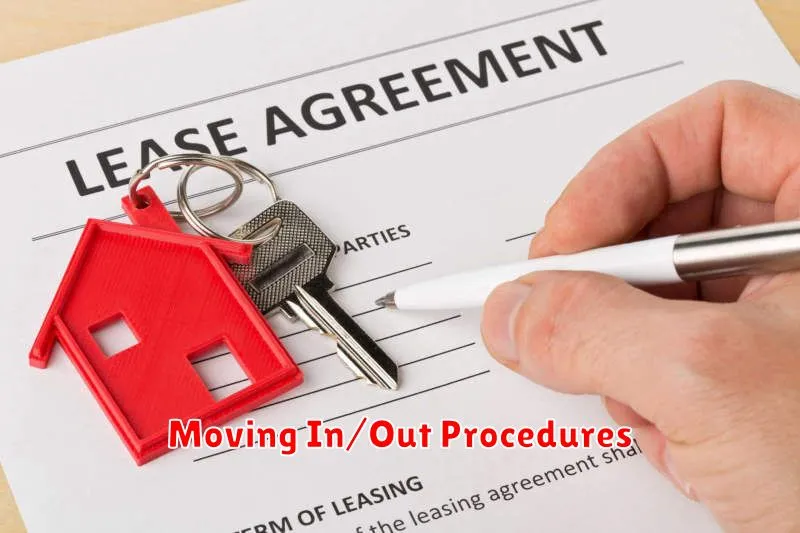
Before signing a lease, it’s essential to understand the apartment’s moving in and out procedures. Knowing these details will ensure a smooth transition into your new home and prevent any potential issues when you move out.
Ask about the following:
- Move-in inspection: When and how is the move-in inspection conducted? What are the expectations for the condition of the apartment? Will you be required to sign a move-in inspection report documenting any pre-existing damages?
- Security deposit: How much is the security deposit? When and how will it be returned? Are there any specific deductions made for damages or cleaning?
- Move-out notice: How much notice is required to terminate the lease? What are the steps involved in moving out?
- Final inspection: What is the process for the final inspection? What are the expectations for cleaning and repairs?
- Key deposit: Is there a key deposit? When and how will it be refunded?
- Parking: What are the parking arrangements and any associated fees? Are there any restrictions on parking during the move-in/out process?
- Trash removal: How are you expected to dispose of your trash during the move-out process? Are there specific arrangements for large items?
By understanding the moving in and out procedures, you can ensure a stress-free experience and avoid any potential disputes with your landlord.
Breaking the Lease Terms
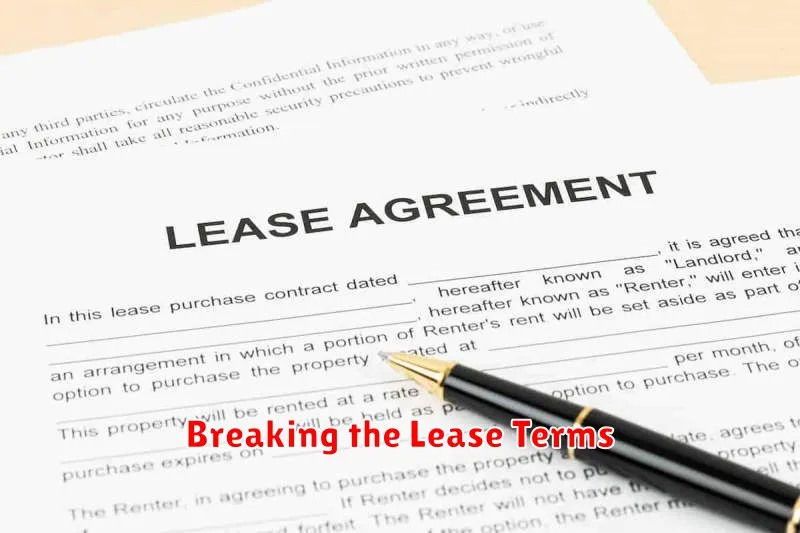
Before signing an apartment lease, it is crucial to understand the terms and conditions, including the possibility of breaking the lease. It’s essential to ask specific questions about lease termination fees and circumstances that may allow you to break the lease without penalty. This includes:
- What are the specific circumstances that would allow me to break the lease without penalty?
- Are there any exceptions to the lease termination fee?
- How much is the lease termination fee?
- How long do I have to give notice before breaking the lease?
- What are the steps involved in breaking the lease?
Understanding these details can help you avoid unexpected costs or penalties should you need to move out before your lease expires.
Negotiating Lease Terms
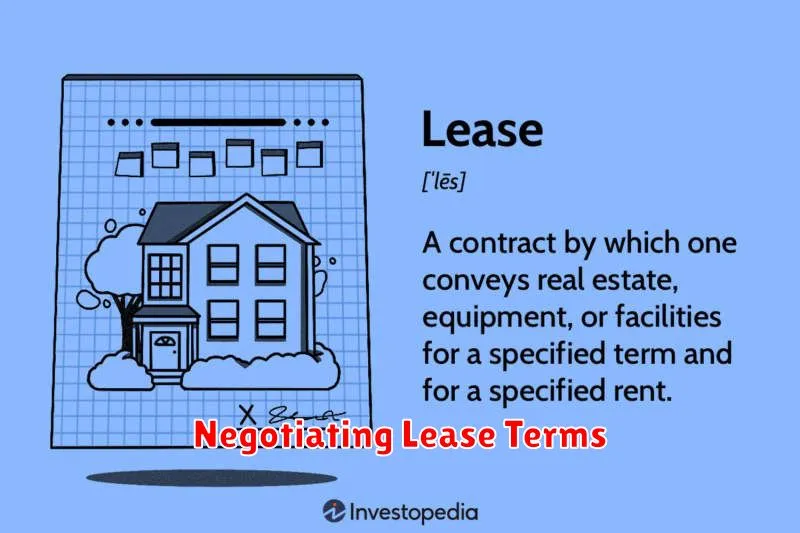
While most apartment leases are standardized contracts, there are still many aspects that can be negotiated. It’s crucial to understand what’s negotiable and what’s not, and to be prepared to make your case. Here are some common areas where you might be able to negotiate:
Rent: While it’s unlikely you’ll get a significant discount on rent, you might be able to negotiate a lower rate if you’re willing to sign a longer lease, pay rent in advance, or agree to a smaller security deposit. You could also negotiate a lower rate if the apartment has a maintenance issue that needs to be fixed.
Security Deposit: The security deposit is usually equal to one or two months of rent, but you might be able to negotiate a lower amount, particularly if you have a strong rental history and good credit.
Lease Length: Most leases are for 12 months, but you might be able to negotiate a shorter lease term, particularly if you’re willing to pay a higher rent. Longer leases can be negotiated too, which might result in a lower rent per month.
Pet Policy: If the property allows pets, you might be able to negotiate a lower pet deposit or a waiver of the pet rent. You may also be able to negotiate a more flexible pet policy, such as allowing a larger breed or multiple pets.
Utilities: Some leases include utilities in the rent, while others require you to pay for them separately. You might be able to negotiate the inclusion of certain utilities in your rent, particularly if you’re signing a longer lease.
Parking: If parking is limited or expensive, you might be able to negotiate a lower parking fee or a reserved parking spot.
When negotiating lease terms, it’s important to be polite and respectful. Be prepared to make concessions, and be willing to walk away if you can’t reach an agreement that works for you. Be sure to get everything in writing, including any agreed-upon changes to the lease. By understanding your rights and being willing to negotiate, you can ensure that your rental experience is a positive one.
Reviewing the Lease Agreement with Legal Counsel
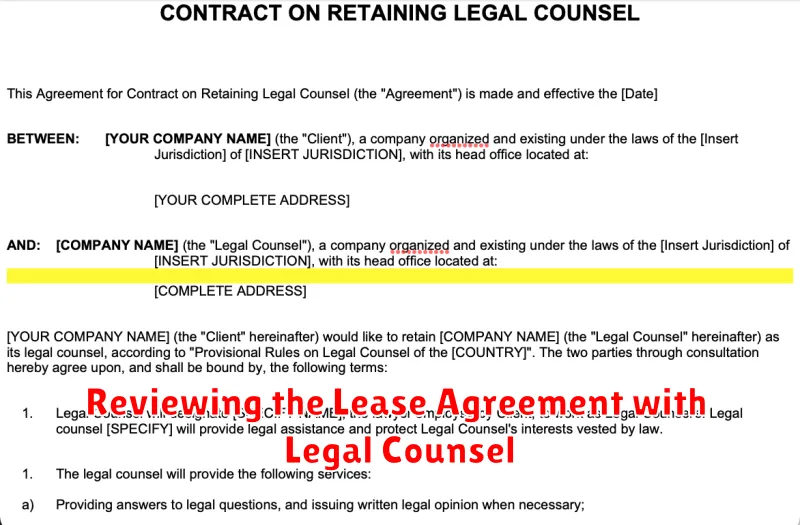
Before signing a lease agreement for an apartment, it is crucial to review it thoroughly with legal counsel. A lawyer can help you understand the terms and conditions, identify any potential risks, and negotiate favorable changes if necessary.
Here are some key reasons why legal counsel is essential:
- Understanding Legal Language: Lease agreements often contain complex legal jargon that can be difficult to decipher. A lawyer can translate the legalese into plain language, ensuring you fully comprehend your rights and obligations.
- Identifying Potential Risks: Legal counsel can spot hidden clauses or ambiguous language that could lead to disputes or financial burdens in the future. They can highlight any unfair or unreasonable terms and advise you on how to address them.
- Negotiating Favorable Terms: If you have any concerns about the lease agreement, a lawyer can assist you in negotiating more favorable terms. They can advocate for your interests and ensure that the agreement protects you.
- Preventing Legal Disputes: By reviewing the lease agreement with legal counsel, you can minimize the risk of future legal disputes. A lawyer can ensure that the agreement is legally sound and protects your rights.
Consulting with a real estate lawyer before signing a lease is a wise investment. They can provide valuable insights and protect you from potential legal pitfalls.

